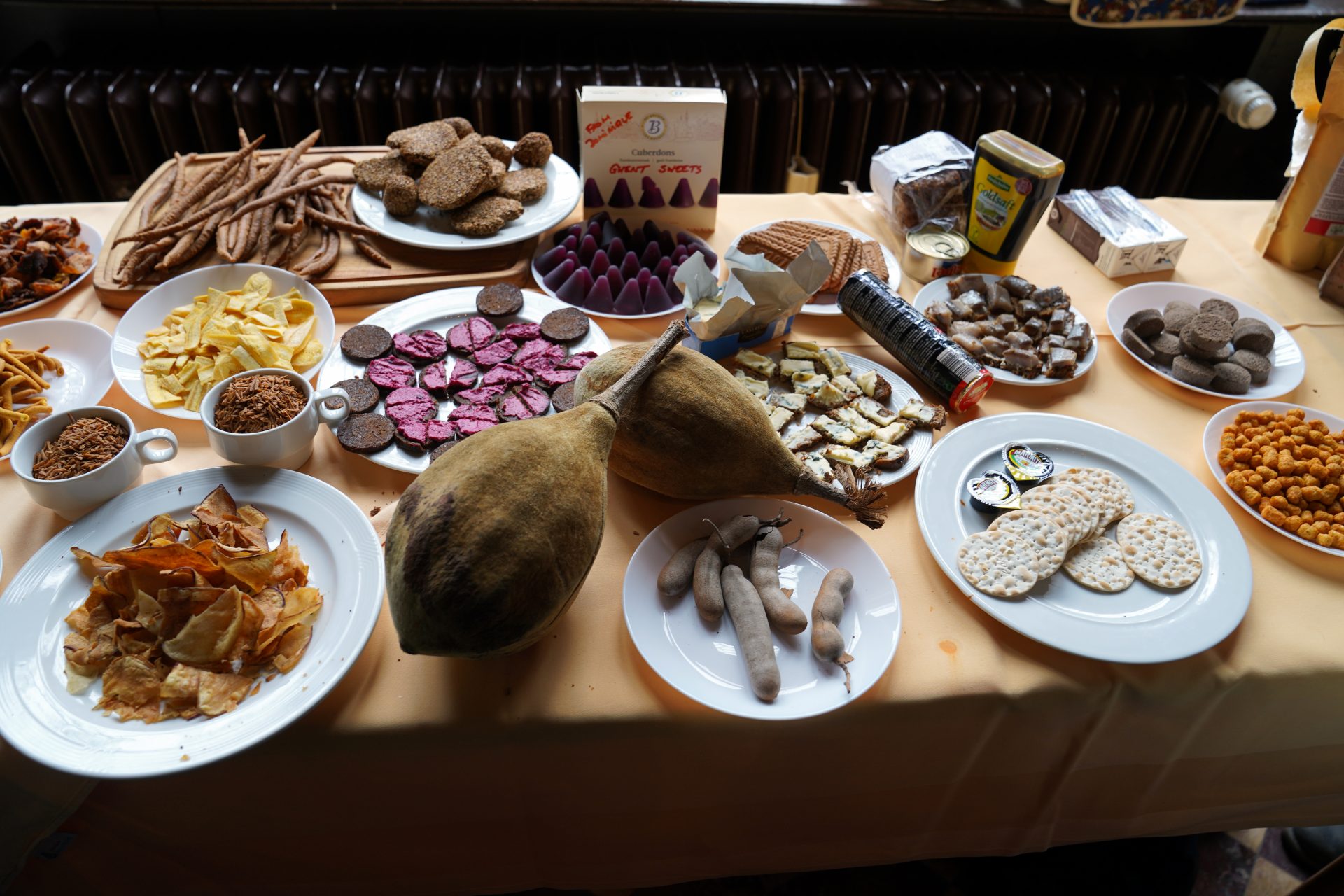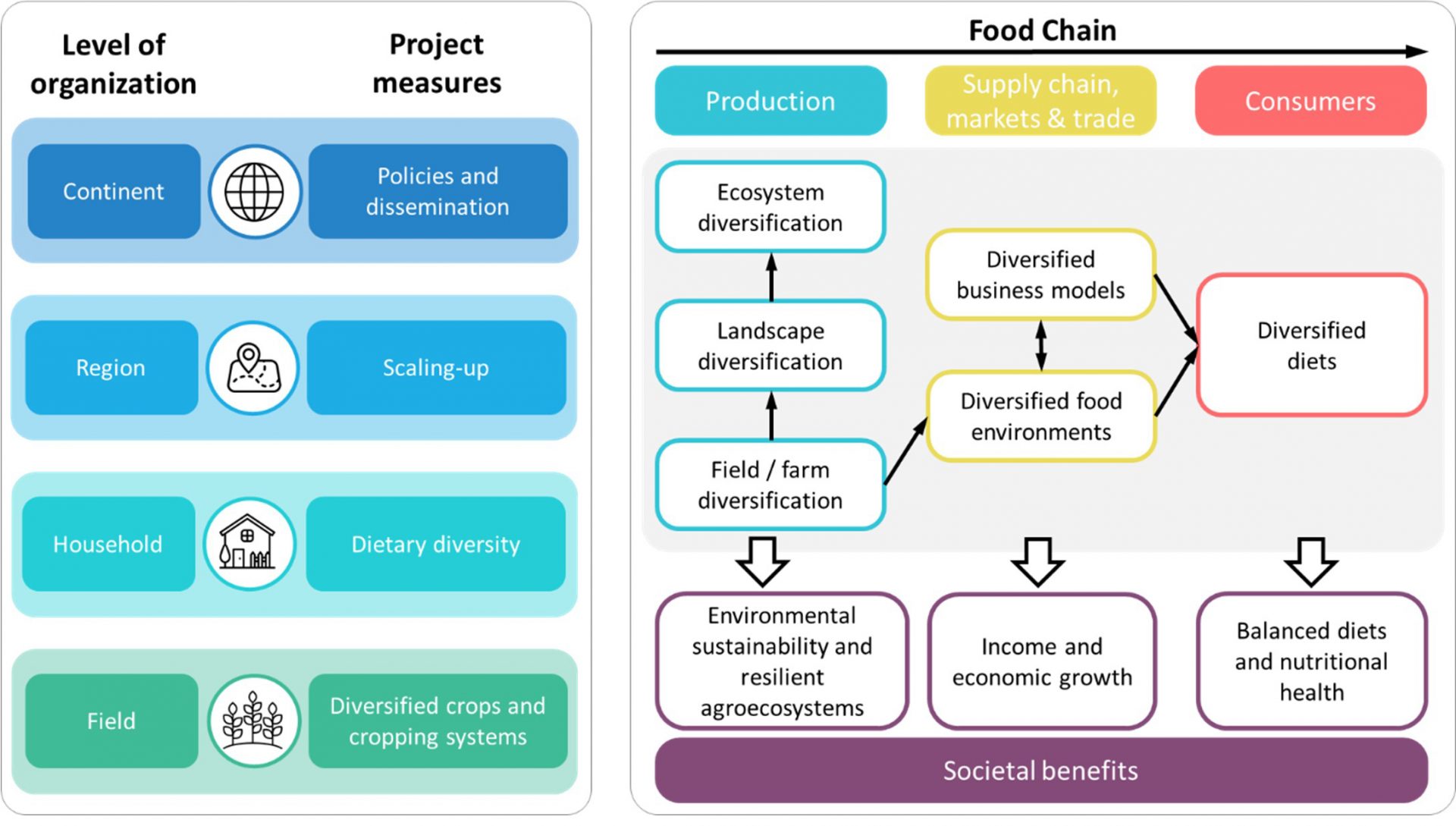Background Information
Africa faces persistent undernutrition, micronutrient deficiencies and growing rates of overweight, obesity, and diet related diseases known as the triple burden of malnutrition. These nutritional problems not only overburden health care system but also undermine economic growth and development in Africa.

Global nutrition is dominated by about 15 highly developed crop species that provide about 70% of human calories, although about 50 000 plant species are considered edible. Meanwhile, crop diversity is declining at the allele, genotype, and species levels.
Aim
HealthyDiets4Africa, a transdisciplinary and translational research project, aims to harness the potential of food systems diversification to address malnutrition and improve food and nutrition security. Our central hypothesis is that diversifying different elements of the food chain will improve nutritional health and reduce malnutrition in Africa, while bringing economic and environmental benefits. Our overall goal is therefore to build diversified food systems in eight African countries: Benin, Cameroon, Ghana, Ivory Coast, Kenya, Liberia, Nigeria, Uganda.
In line with the objectives of the EU Green Deal and the global elements of the EU Farm-to-Fork Strategy, HealthyDiets4Africa aims to contribute to the transformation of food systems in Africa through diversification to make them more resilient, sustainable, and climate-friendly, while improving the supply of safe, nutritious, and affordable food to combat malnutrition. The HealthyDiets4Africa project covers the entire scope of the call HORIZON-CL6-2022-FARM2FORK-01-13.
Approach: Diversification for safe, healthy, and affordable diets
Diversification is a powerful approach to strengthen resilience of food systems. Sustainable food systems and diets include the following domains: food production, food quality, societal values, environment, health, economy, and governance. Diversification can occur at different stages of the food chain, including production, supply chains, and consumption, and at various levels of organization, ranging from the farm to the continental level of these domains.

Therefore, HealthyDiets4Africa explores diversification opportunities along the food chain, based on the central hypothesis that whole food system diversification leads to healthier diets while providing economic, social, and environmental benefits. At the production level, the project explores diversification of the farm/field, landscape and ecosystem leading to improved environmental sustainability and resilient agroecosystems. At the supply chain, markets and trade, the project explores diversification of business models and food environments that contribute to improved income and economic growth. It is expected that diversified supply chain will lead to diversified diets, which in turn will contribute to balanced diets and nutritional health.
This project will focus on food systems of crops (cereals, legumes, vegetables, fruits) and fish. The project will engage the different food value chain players, policy makers and key partners and apply interdisciplinary and translational research approaches to actualize the project goals. Apart from academic publications, outputs and deliverables will include novel crops or crop varieties with enhanced nutritional value, diversified crop and food production and processing systems, recipes and dietary recommendations, measures to facilitate the adoption of diversified diets, as well as innovative business models for novel food products.